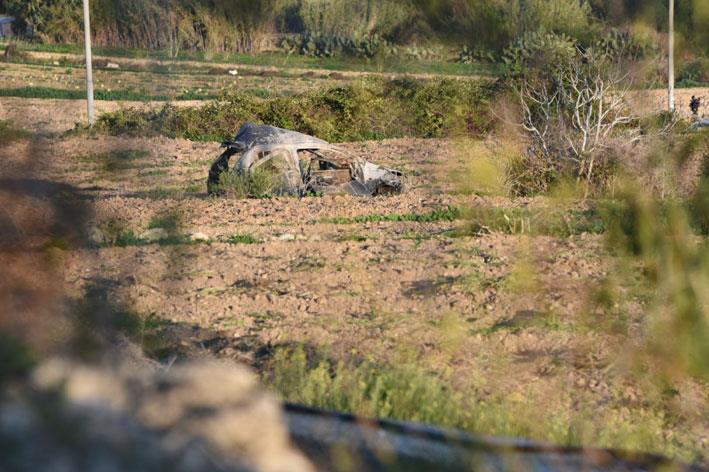The European Federation of Journalists and several partner organisations of the Council of Europe Platform for the Promotion of Journalism and the Protection of Journalists, have called for "close international scrutiny over Daphne Caruana Galizia's murder".
The EFJ and several other journalistic organisations have expressed deep concern "over the lack of progress in the investigation into the murder of Maltese journalist Daphne Caruana Galizia. The authorities have announced the arrests of three suspects in connection with her murder, but there remains a widespread belief that those who ordered this crime have not yet been identified".
They said that her assassination on 16 October "raised concerns not only about protection of critical journalists but also about the rule of law and corruption in Malta.
"More than three months after the journalist's brutal murder there are no public indications to suggest that the authorities have identified the people who commissioned, planned or orchestrated the murder.
"We remind the government of Malta and all concerned that guidelines related to judicial follow-ups to the killing of journalists approved by the Committee of Ministers of the Council of Europe in April 2016 state that: 'investigations must be effective to maintain public confidence in the authorities' maintenance of the rule of law and to prevent any appearance of collusion in or tolerance of unlawful acts'."

They also pointed out how the Guidelines also recommend that "investigations should be subject to public oversight, and that the victim's next of kin must be involved in the procedure to the extent necessary to safeguard their legitimate interests."
As such, the organisations said they believe that "given the profile of the crime and the issues of corruption Daphne Caruana Galizia had worked to uncover, the investigation into her assassination demands the continued scrutiny of the international community.
"We join Daphne Caruana Galizia's family in calling on the Parliamentary Assembly of the Council of Europe to appoint a special rapporteur to monitor the ongoing murder investigation and make an assessment of the contextual circumstances that led to her murder."
In a joint open letter to the members of the Parliamentary Assembly of the Council of Europe, the organisations called for a PACE Special Rapporteur on Daphne Caruana Galizia's assassination and the crimes she exposed.
They stated: "Only months before, Daphne Caruana Galizia had uncovered systemic government corruption implicating senior members of her country's government, showing how offshore structures exposed in the Panama Papers were used to receive and launder kickbacks on the sale of Maltese passports and process unexplained payments from members of Azerbaijan's ruling family.
"In a context of complete impunity for the high-level corruption Daphne Caruana Galizia exposed and the legal, financial and other threats she faced from figures in or close to government before her assassination, her killing has underlined in shocking fashion the extent of corruption and rule of law failings in Malta. The threat to the country's liberal democracy and press freedom is a real one: Malta has slipped 16 places in a single year in Freedom House's latest global ranking.

"Daphne Caruana Galizia's violent death and the impunity for the crimes she revealed have serious consequences in the most fundamental areas of the work of the Parliamentary Assembly of the Council of Europe.
"At the winter session in Strasbourg, Daphne Caruana Galizia's three sons will be calling for a special rapporteur to be appointed whose mandate will involve monitoring the ongoing murder investigation in Malta, investigating the broader circumstances surrounding Daphne Caruana Galizia's death, and ensuring there is no impunity for the perpetrators of the crimes Daphne Caruana Galizia exposed.
"We ask you to heed their call and to support their efforts in every possible way in the interests of all of us who work to see justice and bring an end to impunity."
The letter was signed by: Article 19 (A19), Association of European Journalists (AEJ), Committee to Protect Journalists (CPJ), European Federation of Journalists (EFJ), Index On Censorship, International Federation of Journalists (IFJ), International News Safety Institute (INSI), International Press Institute (IPI), PEN International, and Reporters Sans Frontières (RSF).